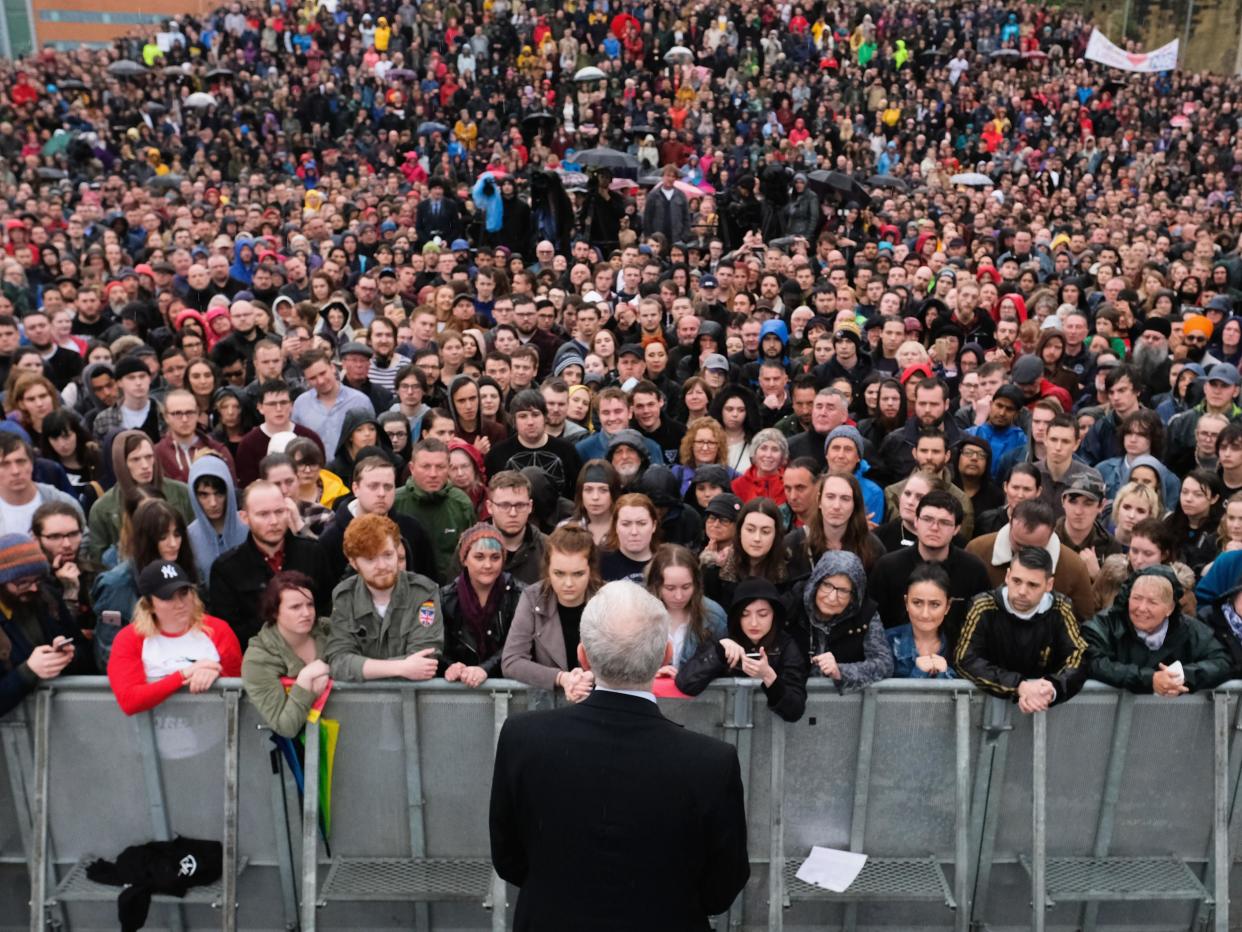This is why both Labour and the Conservatives are wrong about austerity

The A-word is the one I have heard most at Westminster this week, although MPs were not talking about the BBC TV series. Austerity is at the heart of the political debate.
Philip Hammond’s Budget won unexpected plaudits from Conservative MPs after he eased it by finding an extra £25bn over five years. But the Institute for Fiscal Studies was quick to point out that we are nowhere near the end of austerity, with £12bn of welfare cuts still being implemented, and spending on public services in 2022-23 due to be 3.6 per cent lower than this year. Then there’s the unprecedented squeeze on living standards, and grim forecast of two decades of wage stagnation. And that’s before factoring in Brexit.
Tory MPs found some much-needed hope because they have convinced themselves Labour’s anti-austerity ticket – and Theresa May’s dreadful campaign – denied them their majority in June. They can’t quite bring themselves to give Jeremy Corbyn any credit. Or, as they plough on with Brexit despite the increasingly obvious downsides, can they concede that it cost them votes.
Similarly, the Labour leadership believes the tide turned against austerity in 2016, and the party captured the mood by offering a radical alternative rather than Tory-lite policies. We can hardly blame Labour for claiming it has won the argument. Mocking Hammond’s partial retreat, Corbyn told a rally on Thursday night: “The magic money tree is doing really well!”
However, there is growing evidence that it was Brexit wot won it in June. In the British Election Study, based on interviews with 30,000 people, academics found that more than a third of people named Brexit as the single most important issue facing the country. About 10 per cent cited either terrorism or the NHS, and only one in 20 the economy. Although Corbyn’s popularity shifted votes during the campaign, Labour reaped the benefit of being the soft Brexit party.
A new study for Best for Britain, which urges people to keep an open mind on Brexit, found that Labour won many seats because of anti-Tory voting by Remainers – even in areas where a majority backed Leave in the referendum. It concluded: “While a significant number of Leave voters appear to have switched to the Conservatives, many Remain voters supported the party in their constituency most likely to beat the Conservatives (mostly Labour).” This suggested the Tories “will struggle to win an election by relying solely on supporters of Brexit, while Labour could get closer to winning a majority if it does more to attract anti-Brexit voters who are still backing the Tories”.
Eloise Todd, Best for Britain’s chief executive, said: “Tactical voting is the untold story of the 2017 election. Our campaign was one of several that promoted tactical voting to fight extreme Brexit. Over a million people saw our dashboard, mainly in marginal constituencies, and 90 million adverts were served across the whole country. There was a huge appetite for this information and the grassroots tactical voting movement was able to deliver, bringing a different dimension to traditional political campaigning.”
So it was more a Brexit election than an anti-austerity one. This could have huge implications. Of course, we can’t know how Brexit will have played out by the next election. We might have had a soft Brexit deal (unlikely), no deal (possible), no Brexit (unlikely) or hard Brexit (probable).
Will this week’s gloomy economic forecasts come true, with the Tories paying a terrible political price? Or will voters hold on to nurse for fear of something worse, as they did in 1992? Will Brexit make the economic backdrop even worse, and the Tories reap the whirlwind? Will endless austerity produce a sea change that carries Labour to power? Senior Labour figures believe that scenario came a big step nearer this week. They may be right, but cannot take it for granted – especially if the Tories manage to delay the election until the last possible moment in 2022, as I suspect they will.
John Curtice, senior fellow at the NatCen social research institute, found that Labour boosted its appeal most not in “left-wing Britain” but in “socially liberal Britain”. (The Tories should take note: they will need to embrace the social liberalism of the Cameron era to win back these voters).
Curtice concluded: “Labour’s advance was strongest amongst those who were keenest on staying in the EU and those who were least concerned about immigration.” If Brexit goes pear-shaped and Britain has another election soon, one more heave from Labour might be enough. But he warned: “If by 2022 Britain has sailed serenely into a post-Brexit future, the party should not assume that another dose of Corbynism will pay a sufficient electoral dividend.”
Both main parties risk learning the wrong lessons from the June election. They would be advised to look closely at what really happened rather than rewrite the history they want to believe.

 Yahoo News
Yahoo News 
